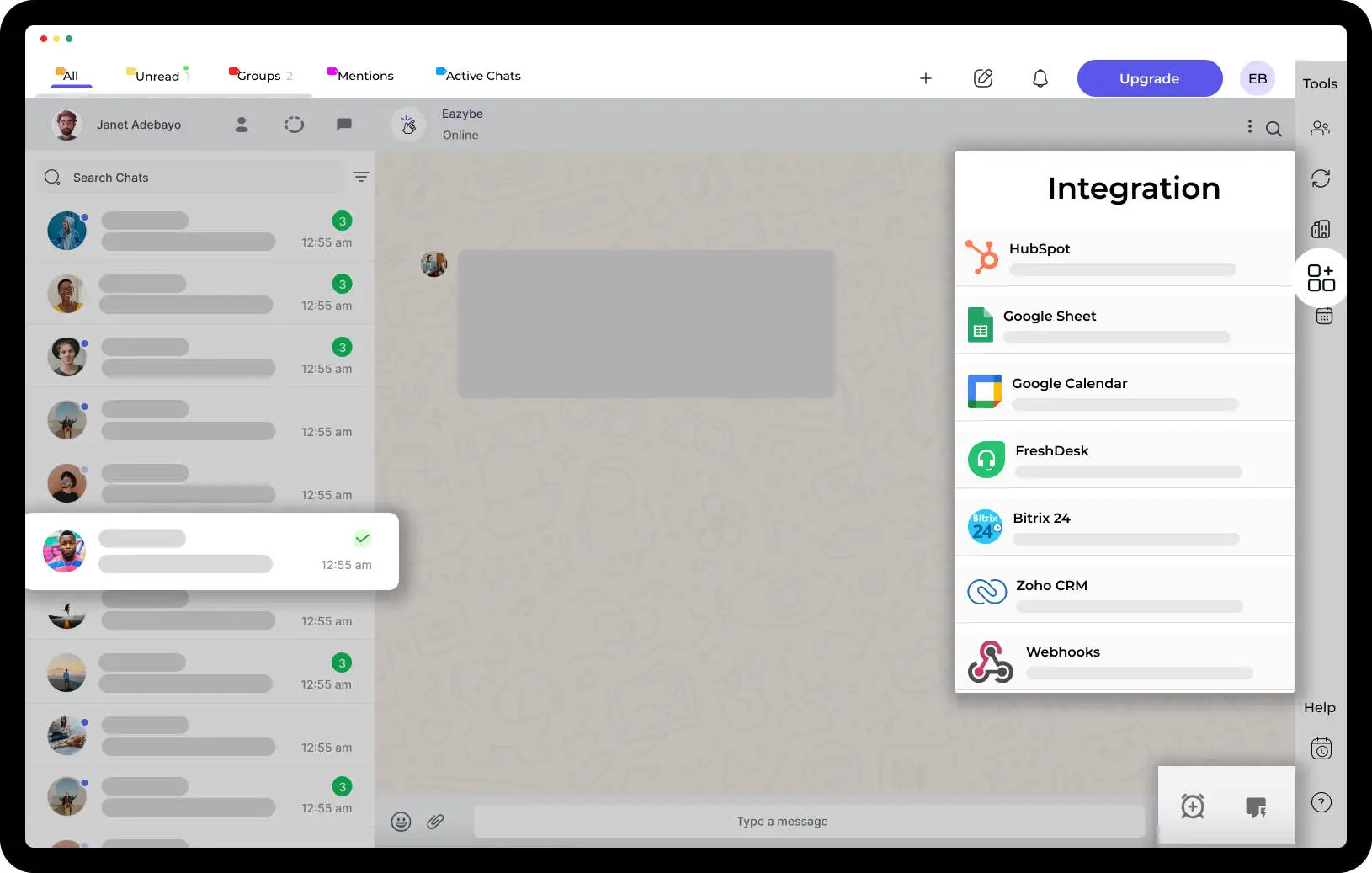
How WhatsApp will take over email by 2030?

WhatsApp is rapidly gaining favor as the communication method of choice for businesses, regardless of their size. This surge in popularity can be attributed to its user-friendly interface, extensive global user base, and the high levels of engagement it facilitates. In contrast, email usage is on the decline as both businesses and individuals increasingly embrace alternative communication platforms, WhatsApp being a prominent example. The efficacy of spam filters has contributed to the diminishing effectiveness of promotional emails, resulting in reduced conversion rates.
WhatsApp is a popular messaging app, and while it had become a crucial communication tool for personal and business use, it hadn't completely replaced email. However, the idea of WhatsApp taking over email by 2030 could be based on several evolving trends and considerations. We can discuss about it by taking a look at their features.
What are the reasons behind the decline of email?
The fast-paced nature of our society has fostered the expectation of immediate responses. Unfortunately, email typically doesn't align with this expectation, often resulting in hours, if not longer, of waiting for a reply. This delay is a significant driver behind the shift towards communication channels like WhatsApp or social media, where real-time interaction is the norm, and consumers increasingly prefer such means of contact.
Moreover, businesses are becoming increasingly aware that their email content might go unnoticed. Promotional emails often find their way into spam or promotions folders, and even if they do reach the inbox, there's no guarantee they will be opened. In fact, on average, employed individuals have an overwhelming number of unread emails sitting in their inbox, which is around 651! This is precisely why alternative marketing channels, such as SMS marketing and WhatsApp newsletters, are gaining traction.
Challenges related to email
- Inbox Placement Challenges: There is no assurance that your emails will reach your customers' primary inbox, with a considerable risk of marketing content being flagged as spam or relegated to the junk folder.
- Time-Intensive Creativity: Achieving email content that truly stands out to readers demands creativity, which can be time-consuming. The inflexibility of email design poses limitations on creative expression. Email lacks the real-time, conversational context provided by instant messaging platforms.
- Collaboration Needs: For collaborative work, email may not be the most efficient choice. Users often turn to project management and communication tools like Slack, Microsoft Teams and even WhatsApp nowadays for better coordination.
- Limited Features: Email services, while evolving, still offer limited interactive features compared to newer platforms. Features like instant voice and video calls are not native to most email clients.
- Overwhelming Competition: The likelihood of customers overlooking your emails is substantial, as they receive numerous similar messages from various direct-to-consumer (DTC) brands, making it challenging to capture their attention.
History and growth of WhatsApp as a messaging platform
WhatsApp is one of the most popular and widely used messaging platforms in the world today. Its history and growth provide an interesting narrative of how a small startup became a global communication giant.
WhatsApp was founded in 2009 by Jan Koum and Brian Acton, started as a simple messaging app and quickly gained popularity due to its ad-free model and internet-based communication. It expanded rapidly, reaching a billion users by 2016. In 2014, it was acquired by Facebook for $19 billion. WhatsApp introduced features like voice calling, video calls, and document sharing, and achieved two billion users by 2019. The platform faced privacy policy controversies but remains a major player in global messaging.
WhatsApp's Soaring Popularity
The real-time aspect of WhatsApp communication, coupled with the prevalence of mobile phone ownership, has gradually positioned WhatsApp as a favored means of interaction, potentially overshadowing email. Here are some of the numerous advantages of using WhatsApp for customer communications:
- Real-time Communication: WhatsApp enables instantaneous communication, making it more efficient and convenient compared to the back-and-forth of email exchanges with hours of waiting for responses.
- Widespread Adoption: WhatsApp ranks among the world's most widely used messaging apps, making it likely that the majority of your customers and employees are already familiar with it.
- Ease of Use: WhatsApp boasts a straightforward and user-friendly interface, facilitating seamless interactions between businesses and customers, and vice versa.
- Strong Security Features: WhatsApp ensures secure communication through end-to-end encryption for all messages, safeguarding the confidentiality of your interactions.
- Cost-Effective: WhatsApp serves as a cost-effective means of marketing to your target audience. It utilizes internet-based messaging, eliminating SMS charges, except for WhatsApp API usage.
- High Open Rates: WhatsApp messaging substantially increases the likelihood of your message being read. With an average WhatsApp user spending approximately 38 minutes on the app each day, a staggering 80% of WhatsApp messages are read within 5 minutes of delivery.
Evolution of communication platforms and the role WhatsApp may play in the next decade
The evolution of communication platforms has been a fascinating journey, from traditional methods to the digital age. Historically, communication relied on in-person conversations, letters, and telegrams. The telephone revolutionized long-distance communication, followed by email in the digital era. However, instant messaging services have taken center stage, with WhatsApp leading the way.
WhatsApp emerged as a game-changer in 2009, offering free, internet-based messaging. It rapidly grew due to its ad-free model, user-friendly interface, and cross-platform compatibility. Over the years, it added voice and video calls, document sharing, and end-to-end encryption.
Looking ahead, WhatsApp is poised to play a pivotal role in the next decade of communication. With its two billion users, it remains a dominant force. The platform continues to evolve, introducing features like business accounts, payment options, and expanded group sizes.
The future may see WhatsApp playing a vital role in the convergence of communication, commerce, and social interactions. As businesses and users seek seamless, secure, and multifunctional platforms, WhatsApp's influence is likely to expand. It could become a go-to platform for everything from chatting with friends to connecting with businesses and even making payments.



.svg)



